Alfred Rouse 'blazing car murder': New DNA tests used
- Published
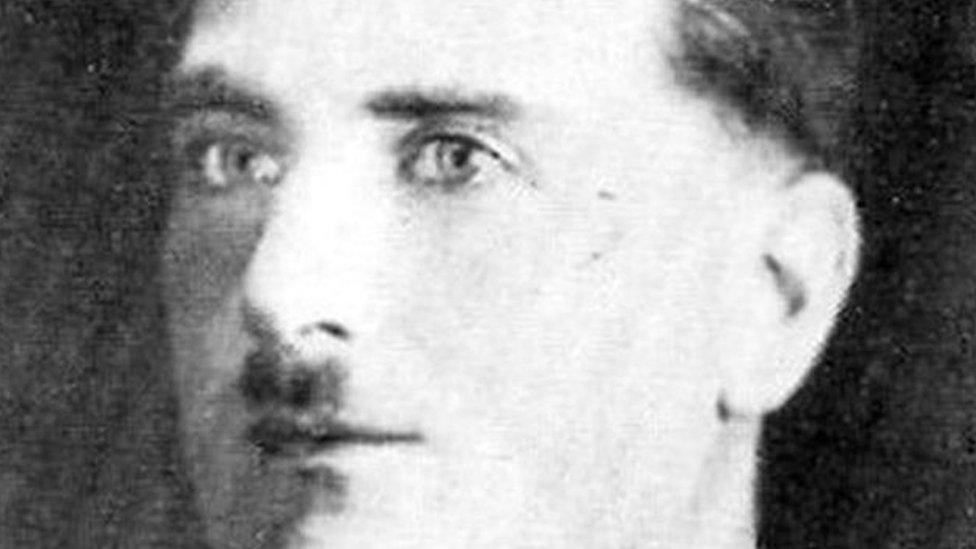
Alfred Rouse said he chose an unknown victim who would not be reported missing
The identity of a man who was burned to death 85 years ago could be revealed through a new batch of DNA tests.
Alfred Rouse tried to fake his own death by leaving a man to burn in his Morris Minor in Hardingstone, Northamptonshire, in 1930.
DNA testing based on people with an unbroken maternal line back to a relative from the time have so far failed to identify Rouse's victim.
Techniques that do not require this link will be used to widen the search.
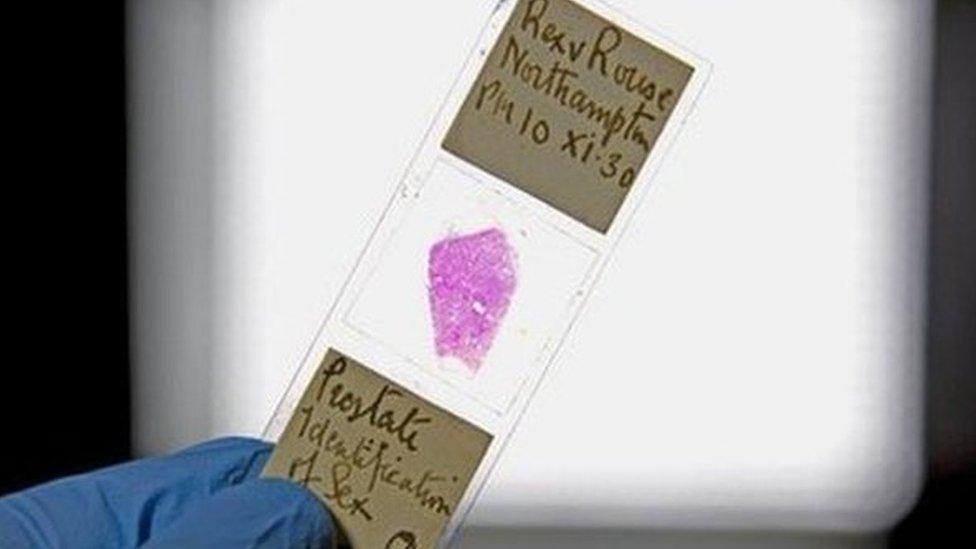
The University of Leicester examined a sample taken from the victim's prostate
Forensic science expert Dr John Bond, from the University of Leicester, said: "It's looking at more of the genome and it's more sensitive to the nuclear DNA, which means we're not solely reliant on the mitochondrial DNA anymore.
"Hopefully we will at some point reach a positive outcome and be able to put a name on the gravestone finally in Hardingstone Cemetery."
Philanderer Rouse, 36, was in financial trouble when he set his car alight - and was later hanged for the murder.
A DNA profile was found in an archived slide in 2013 and has been used to disprove theories of family connections to the case.
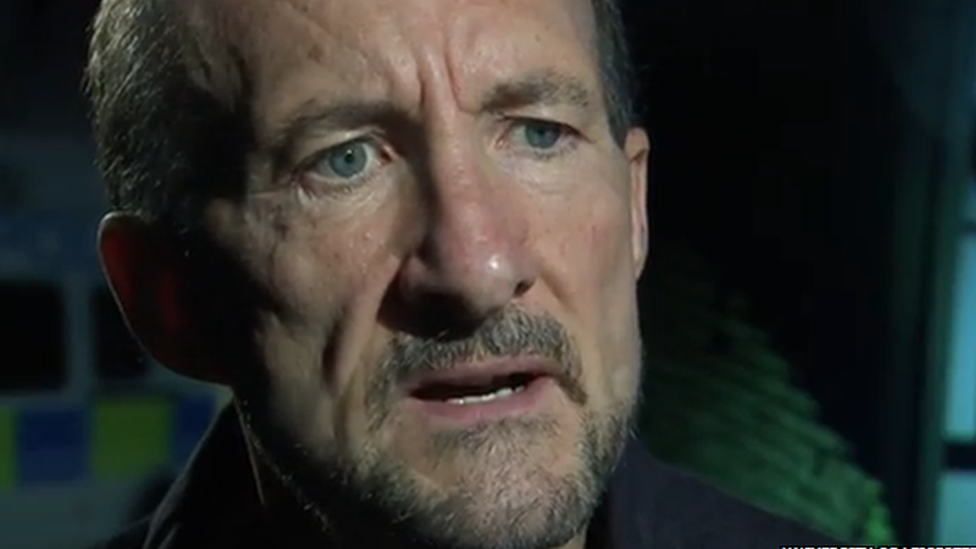
Dr John Bond said he wanted to put a name on the gravestone of the unknown victim
With nine families' claims ruled out earlier this year, Dr Bond said he may have been "somewhat naive" to believe it would be a relatively short search.
"What I hadn't appreciated was just how many families had people who just disappeared around 1930," he said.
Dr Bond said it was believed Rouse, who lived in London, could have tempted the victim to travel with him on the pretence of finding him work in Leicester.
"There were a lot of people at that time of Depression when it would have been difficult to find work, might have had difficulties holding down family life, might have been tempted by the offer of work somewhere else around the country and thought Rouse was doing them a favour," he said.
Dr Bond hopes a renewed appeal based on the next generation sequencing tests in the spring will encourage people with connections to London or Leicester to come forward.
"There's at least two other families who in the past we've had to say no to as they couldn't supply this unbroken maternal line, so in the fullness of time we hope to be able to say 'we'd be able to help you now'," he said.
"He's got to be somebody's relative, we've just got to hit on the right family."
- Published18 July 2015
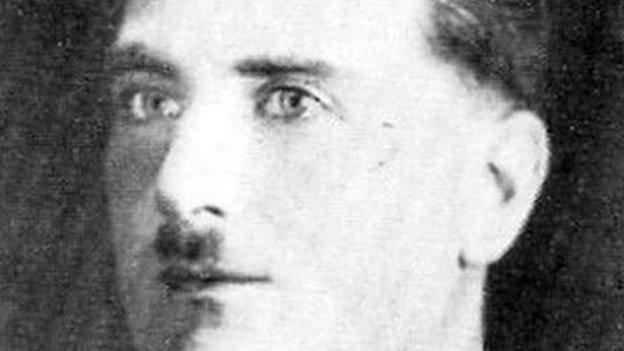
- Published18 October 2014
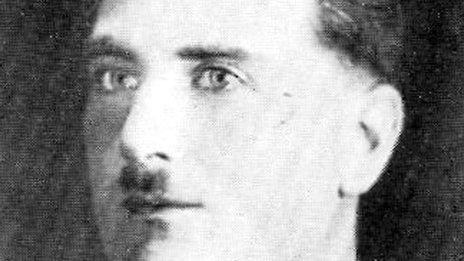
- Published2 August 2014
